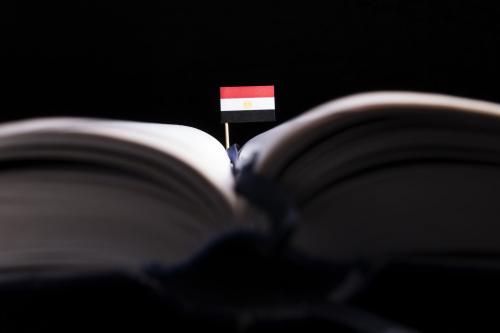This week in Colombo, Sri Lanka, over 1,500 people are convening from around the world for the World Conference on Youth. Over half of attendees will be young people themselves, and all will share ideas, experiences and innovative approaches for effectively contributing to the next global development agenda. Ultimately, the delegates will produce an action plan that spells out youth priorities for the post-2015 development agenda.
This active engagement of youth and their priorities is a positive development since the last time development goals were considered. In 2000, the Millennium Development Goals (MDGs) on education focused almost exclusively on the issue of universal access to primary education. Since then, however, the international community has rallied around the need to address not just school attendance, but also the challenges around quality and equity in education.
These challenges are intensified by the frightening figures regarding the global learning crisis, a youth skills-shortage and unemployment—250 million children primary school-aged children lack basic skills and 73 million youth are out of work. With these urgent statistics in mind, U.N. agencies, civil society groups and governments have begun working on more nuanced post-2015 development goals, ones that consider the foundational questions about the value, purpose and relevance of education. In doing so, initiatives and researchers are placing greater emphasis on the notion that education isn’t just about building a skilled workforce, but also about cultivating active and responsible citizens; that teaching isn’t just a matter of presenting facts but instilling skills, attitudes and awareness in students that facilitate peace and tolerance and enable the international collaboration needed to solve global challenges. This concept, central to the U.N. secretary-general’s Global Education First Initiative (GEFI), has been branded as education for global citizenship.
Alongside the Center for Universal Education and UNESCO, the GEFI Youth Advisory Group (YAG) is working to establish international consensus on a definition of education for global citizenship, explore best teaching practices, and develop a framework for measuring the impact of global citizenship education. Specifically, the YAG is leading a series of global youth consultations, which will actively engage the key stakeholders in education: young people themselves. During the YAG’s inaugural consultation on education for global citizenship this week in Sri Lanka, delegates from every corner of the world and from a wide variety of marginalized groups will have an honest and insightful conversation about identity, cultural understanding, conflict, sustainability, human rights and values.
It is good timing for these discussions. Two important documents containing post-2015 education targets are being debated this month, and clarity around global citizenship education is needed in these discussions: the inter-governmental Open Working Group (OWG) on Sustainable Development Goals’ (SDGs) working document of revised SDG focus areas, including an education goal and targets, and the Education for All (EFA) Steering Committee’s Joint Proposal on Education Post-2015. Both documents focus on an education goal that strives for quality education and lifelong learning for all, and there are considerable overlaps between many of the targets, including on early childhood education; completion of free quality, basic education (primary and secondary), including achieving relevant learning outcomes; adult literacy; and youth and adult skills. While each report contains a target that could fit into an education for global citizenship category, the OWG target focuses on “integrating relevant knowledge and skills in education curricula, including information and communications technology skills, education for sustainable development, and awareness raising on culture’s contribution to sustainable development,” while the EFA target requires that learners “acquire knowledge, skills, values and attitudes for global citizenship and sustainable development.” The consensus-building activities that the YAG are engaged in with partners are critical to distilling these targets into one that is meaningful and actionable for the education and sustainable development communities, both at global and national levels.
The UN secretary-general and members of the OWG have repeatedly stated the importance of hearing from voices at the country level in the post-2015 discussions. A recent statement submitted to OWG members in support of a stand-alone education goal with a strong focus on equitable learning, including highlighting the area of global citizenship education, and endorsed by over 218 organizations, national education coalitions, and foundations from all regions of the world, did just that. The YAG is using its members’ wide-reaching expertise and engaging with their many partners to place young people’s voices at the heart of the post-2015 consultations. By moderating three major online consultations on post-2015 education, and facilitating a global consultation in Sri Lanka this week with the U.N. special envoy on youth, they are helping provide the platform for youth to make tangible change. The YAG is galvanizing marginalized children and youth to be outspoken advocates against their plight. As they stand united calling passionately for change and justice, it will prove just too difficult for governments to ignore.


Commentary
Youth Speak Out on Education Goals in the Post-2015 Agenda
May 7, 2014